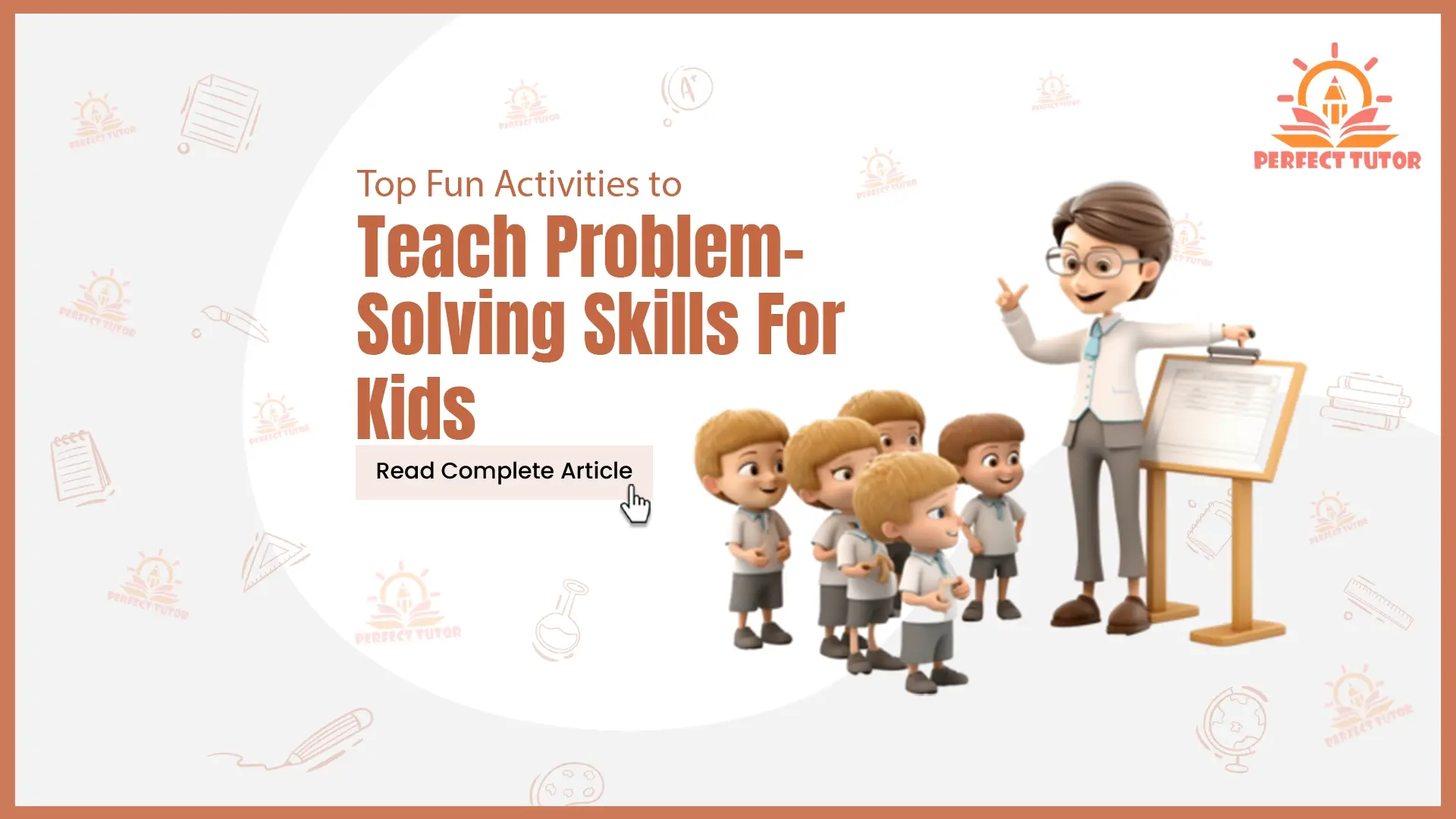Top Fun Activities to Teach Problem-Solving Skills for Kids
Problem-solving skills are really important for kids. As they grow up, kids get lots of opportunities to learn new things. But they also face challenges like fights with friends, feeling pressure from peers, or solving difficult math problems. Learning to solve problems helps kids handle these situations better. Having good problem-solving skills can make a big difference for children. It helps them understand how to deal with difficult situations in the right way.
This helps them learn to find genuine solutions on their own rather than always asking adults. This also makes them more confident to use problem-solving skills and come up with their own ideas when faced with problems.
Read this blog to know the importance of problem-solving abilities for kids, how to develop this skill in them, and many other exercises like storytelling, coding for kids, puzzles, crafts, etc. that will help them develop this important skill.
Importance of Problem-Solving Skills for Kids
Problem-solving skills are important for children because they help them deal with challenges, make good decisions, and think critically. These skills teach children to solve problems step by step, which increases their confidence and independence. By developing problem-solving skills, children learn to look at situations, think of different solutions, and choose the best solution. This helps them do well in school and prepare for real-life challenges.
Some Common Mistakes That Children Make While Solving Problems
Children often make several common mistakes when trying to solve problems:
Rushing to Solutions: They try to solve the problem quickly without fully understanding it.
Lack of Patience: If kids don’t get a quick solution they easily get frustrated and give up.
Not Considering All Options: They only focus on the first idea that comes to mind and miss out on finding better solutions.
Ignoring details: Children may ignore important details needed to solve the problem.
Fear of Making Mistakes: They avoid trying new things because they are afraid of failure.
How to Develop Problem-Solving Skills in Children
Here are some effective ways to help children develop problem-solving skills:
Encourage Curiosity: Encourage curiosity by asking questions that prompt them to think and explore.
Model Problem-Solving: Teach your child to solve problems step by step.
Create a Safe Environment: Create a safe environment where children can make mistakes and learn from them without worrying about criticism.
Provide Opportunities: Involve children in activities that require them to think critically and make decisions.
Encourage children to try, not just to win: let them know that you are proud of their hard work in solving problems, no matter the outcome.
Related:- Top 7 Tips Motivational activities for students
Top Problem-Solving Activities for Kids
In fact, it could be a lot of fun! Here are some great activities to help children develop these important skills.
1. Puzzles and Brain Teasers
Why it’s great: Riddles and brain teasers help kids think deeply and help them learn to solve problems carefully.
Activity ideas:
Jigsaw puzzles
Crossword puzzles
Sudoku
Rubik's cube
These activities help children to understand the problem step by step and find its solution.
2. Role-Playing Games
Why it's great: Role-based games encourage children to think on the spot and come up with solutions in real time.
Activity ideas:
Playing "store" where kids can buy and sell items
Pretend to be different characters in a story
Solving imaginary scenarios like being lost in a forest or finding a hidden treasure
Role-playing helps children use their imagination as well as solve problems.
3. Building and Construction
Why it's great: Building activities helps kids learn how things work and get better at understanding the space around them.
Activity ideas:
LEGO or other building blocks
Creating structures with cardboard boxes
Building forts with blankets and pillows
These activities encourage children to plan, design, and execute their ideas, thereby improving their problem-solving abilities.
4. Strategy Games
Why it's great: Strategy games require kids to think ahead and plan their moves carefully.
Activity ideas:
Chess
Checkers
Board games like "Clue" or "Risk"
Playing strategic games helps children anticipate problems and come up with solutions ahead of time.
5. Science Experiments
Why it's great: Science experiments teach children to observe closely, make predictions, and try out their ideas to see what happens.
Activity ideas:
Simple experiments like mixing baking soda and vinegar
Growing plants from seeds
Making a homemade volcano
These activities help children become curious and think carefully, which are important for solving problems.
Also, Read This:- Problems faced by students in classroom
6. Art and Crafts
Why it's great: Arts and crafts help children to be creative and think in their own special way.
Activity ideas:
Painting and drawing
Creating sculptures with clay
Making collages from magazine cutouts
Through art, children learn to share their ideas and find creative solutions to challenges they face in their projects.
7. Outdoor Adventures
Why it's great: Outdoor activities like explorations and nature walks help children learn to work together and solve real-life problems.
Activity ideas:
Scavenger hunts
Obstacle courses
Nature walks with a list of items to find
These activities help children learn to solve problems together and think quickly when situations change.
Conclusion
Teaching children to solve problems is not difficult. You can help them learn these important skills naturally and in a fun way by doing fun activities with them every day. Whether it's puzzles, pretending, or outdoor fun, there are lots of ways to make learning problem-solving skills fun and interesting for kids. Start trying these activities today and see how your child's problem-solving skills improve!
It is important for children to learn problem-solving skills and be successful. You can help your child become a better problem solver by supporting them and doing fun activities together. Encourage them to ask questions, show them how to solve problems, give them opportunities to practice, and watch them become more confident and skilled at solving problems.



 +91 8700847275
+91 8700847275
 +1 8009616567
+1 8009616567